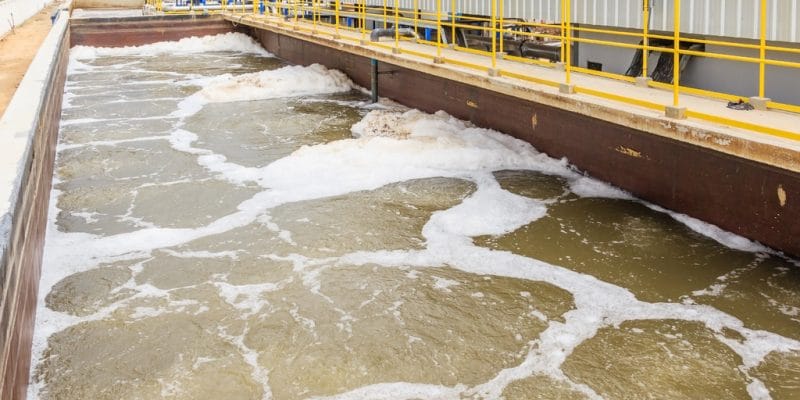The Ghanaian government wants to improve waste management in Tema. It has recently launched the construction of a sewage and sludge treatment plant. The construction of a solid waste treatment plant is also planned. Zoomlion, the subsidiary of the Jospong group, will operate the future facilities.
On October 26th, 2020, the President of the Republic of Ghana, Nana Addo Dankwa Akufo-Addo launched the construction of new sanitation facilities in this city located 25 km east of the capital Accra.
Among the facilities under construction in Tema is a sewage treatment plant. According to the Ghanaian authorities, the plant will treat 44,000 m3 of wastewater per day. These effluents come from the city’s sewers, which will be rehabilitated within the framework of this sanitation project. The future Tema wastewater treatment plant will also treat 1000 m3 of septic tank sludge. Tema’s current wastewater treatment plant (20,000 m3 per day) and sewerage system were built in 1963 and rehabilitated in 1994 to serve 14,937 people. Today Tema has more than 360,800 inhabitants.
Facilities operated by Zoomlion
According to the Ghanaian government, Zoomlion, the subsidiary of the Jospong group, will operate the future Tema wastewater treatment plant. The company, which provides the public waste management service in several Ghanaian cities, will also be in charge of an integrated solid waste recycling and composting plant. The waste treatment plant will be located in Ashaiman, a city in the Greater Accra region. It will have units for sorting, recycling solid waste and composting organic waste. The plant will be capable of processing 400 tonnes of solid waste per day. This should make a lasting contribution to waste disposal in Ashaiman and surrounding areas.
In addition, the plant will produce organic compost for horticultural and agronomic purposes. This is expected to help boost agricultural production and the ongoing food and employment planting programme in Ashaiman. “The construction of the sewage treatment plant, the recycling plant and the integrated solid waste composting plant, as well as the rehabilitation of sewers and other facilities is expected to take 18 months,” notes the Ghanaian government.
Inès Magoum






